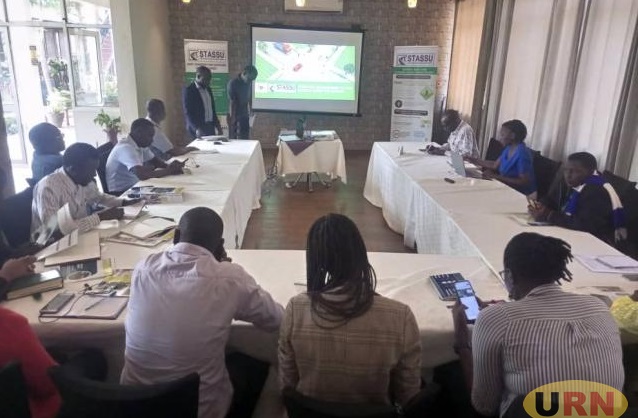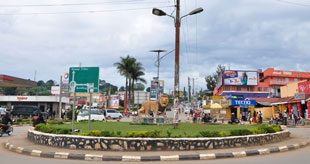
Kampala, Uganda | THE INDEPENDENT | Road safety experts and activists have asked newsroom editors to prioritize stories that can cause road behaviour change in order to curb the ever-increasing fatalities and injuries.
Road safety experts and advocates under their umbrella body Road Safety Advocacy Coalition Uganda (ROSACU) said many times newsroom editors give less priority to road safety stories yet their media houses command a lot of public trust.
Richard Baguma, who is ROSACU’s treasurer said editors often allocate space for stories related to road safety as a by the way (second thought).
“Road safety stories should not be seen as reporting about others for others. The road crashes killing 13 people per day are not stories for others. As an editor, put these 13 daily road deaths in the context of a full taxi of passengers perishing every day. See it in the context that passengers filling a full taxi are killed in road crashes every day,” Baguma said.
The editors and reporters meeting was organized by Safe Transport and Survivors Support Uganda (STASSU) to engage them on the Safe School Zones (SSZ) Guide being developed by the Ministry of Works and Transport (MoWT) with support from STASSU.
Sam Bambanza, STASSU’s executive director, said that the guide will ensure that children are protected in the school zones since many drivers do not reduce speed hence killing and injuring the children. In 2023, 872 children were killed in road crashes translating to nearly three children per day.
“The safe school zone guide will spell out what kind of infrastructure should be in place to protect children. Even when someone is going to ask for a license to set up a school, the guide will tell them what should be done to protect the children,” Bambanza said.
Bambanza and Baguma urged the journalists to prioritize stories of road behaviour change and also stories that speak to authorities about the situation on the roads.
Participants such as Samuel Ssebuliba from Spark TV and Esther Oluka from Daily Monitor said there is a need to curtail school construction in crowded places and also lobby for support for children affected in road crashes.
“Everywhere in Kampala there is a school and more are coming. Don’t we have the means to streamline where a school should be built? Kampala is crowded by vehicles and school children walking to school almost in every corner,” Ssebuliba said.
James Katunguka, the MoWT’s Senior Road Safety, said there are policies in place such as the National Housing Policy which clearly states what requirements are needed to set up a business, a commercial building, a school or even a creational centre. However, Katunguka said the country’s problem is always in implementation and limited funding to operationalize these policies.
“We have realized that even the discipline of policy or law enforcers is subjective and we are thinking of automated management where there is no human interaction. The moment you are caught with an offence, the CCTV cameras will be able to tell the committed offence and attached penalties,” Katunguka said.
Baguma also urged Kampala residents not to drive upcountry for Christmas without testing the condition of their vehicles. According to Baguma, it is difficult to know the condition of a car when you’re ever driving 40km/h in Kampala.
“In Kampala, we always crawl pretending that we’re driving. You can only know that your vehicle isn’t in good condition once you accelerate to 80km/hr. To be on the same side, give your vehicle a professional mechanic to do comprehensive checking before you put it on the road for a long distance,” Baguma said.
Editors and reporters have also been asked to fill their audiences with road safety messages, especially during this Christmas period. Nearly 20 people died between December 23rd and December 26 and New Year’s Day eve.
*****
URN
 The Independent Uganda: You get the Truth we Pay the Price
The Independent Uganda: You get the Truth we Pay the Price



